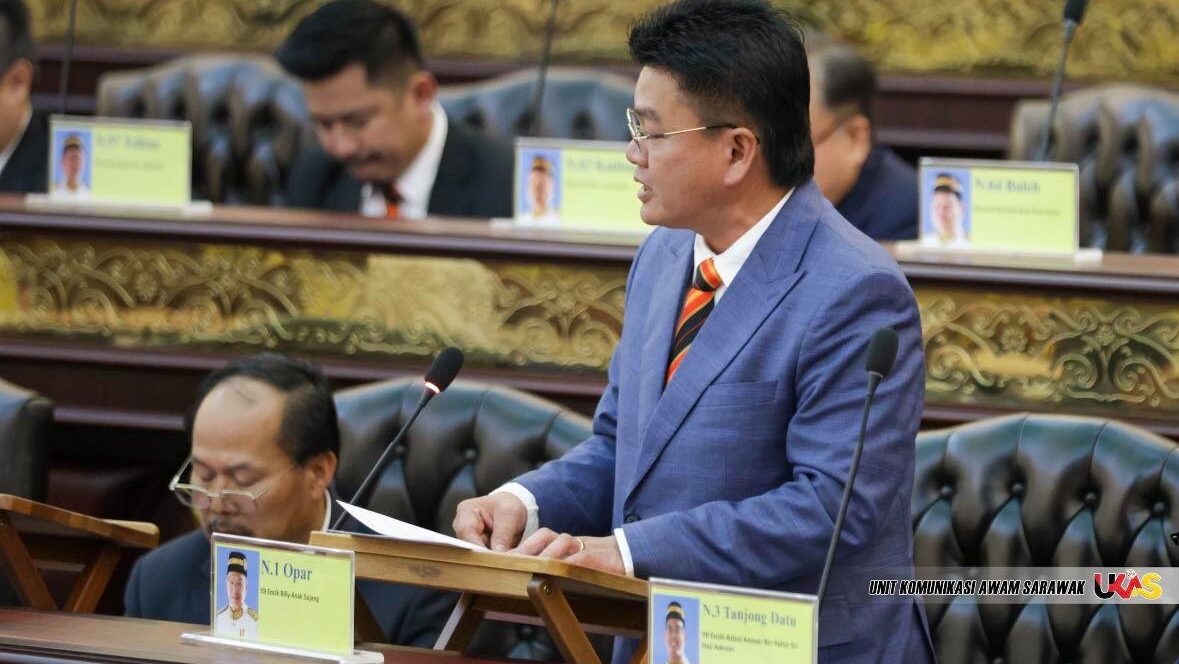KUCHING – The debate on the Sustainable Resources & Wastes Management Bill 2025 took a serious turn yesterday when Opar assemblyman YB Billy Sujang called for a strong, enforceable law to protect Sarawak’s environment and communities from a rising waste crisis.
Speaking during the State Legislative Assembly sitting, he said Sarawak must abandon its old “business-as-usual” approach because the state’s forests, rivers and settlements are now under visible threat from unmanaged waste. He stressed that weak enforcement, fragmented regulation and lack of coordination had allowed the problem to grow for years.
YB Billy backed his argument with national and state-level data showing the scale of the problem. National studies show that Malaysia disposes of more than 39,000 tonnes of municipal waste daily, averaging about 1.17 kg per person. In Sarawak, councils collect more than 718,000 tonnes of waste annually, almost all heading straight to landfills.
He highlighted that urban residents generate more waste daily due to higher consumption and commercial activities. But rural areas suffer the most because waste collection coverage remains low at around 66%, causing many unserved households to resort to open dumping, river disposal or burning.
According to him, rural communities face environmental and health risks simply because services are inconsistent. He stressed that this imbalance must end.
YB Billy urged the House to treat the Bill as a “hammer, not a gesture”. He said the new law must deliver firm action, including binding waste-reduction targets, mandatory segregation at source, full rural collection coverage, and strong penalties against illegal dumping.
He also called for dedicated funding to upgrade both urban and rural waste infrastructure, including transfer stations, recycling hubs, composting plants and specialised rural collection vehicles. Transparent data reporting, public education, community-based efforts and innovation such as waste-to-energy were also listed as essential components.
YB Billy reminded lawmakers that landfills are already under pressure, with more than 80% of national waste ending up there and recycling rates still low. If the Bill is weakened, he warned that costs will rise, landfills will overflow and councils will be forced to stretch shrinking budgets.
He framed the legislation as a matter of fairness, saying urban and rural communities both deserve efficient, reliable services. He insisted that Sarawak must not fall behind other countries that are moving into circular economies.
“This is not a passive environment Bill. This is a political battle—for our children’s health and for Sarawak’s future,” he told the House. “If we fail to act boldly, we will regret it for decades.”
He concluded by fully supporting the Bill and urging all assembly members to pass it with the commitment to enforce it properly. He said the Bill is the key to building a cleaner, sustainable and modern Sarawak where waste becomes value rather than burden.





